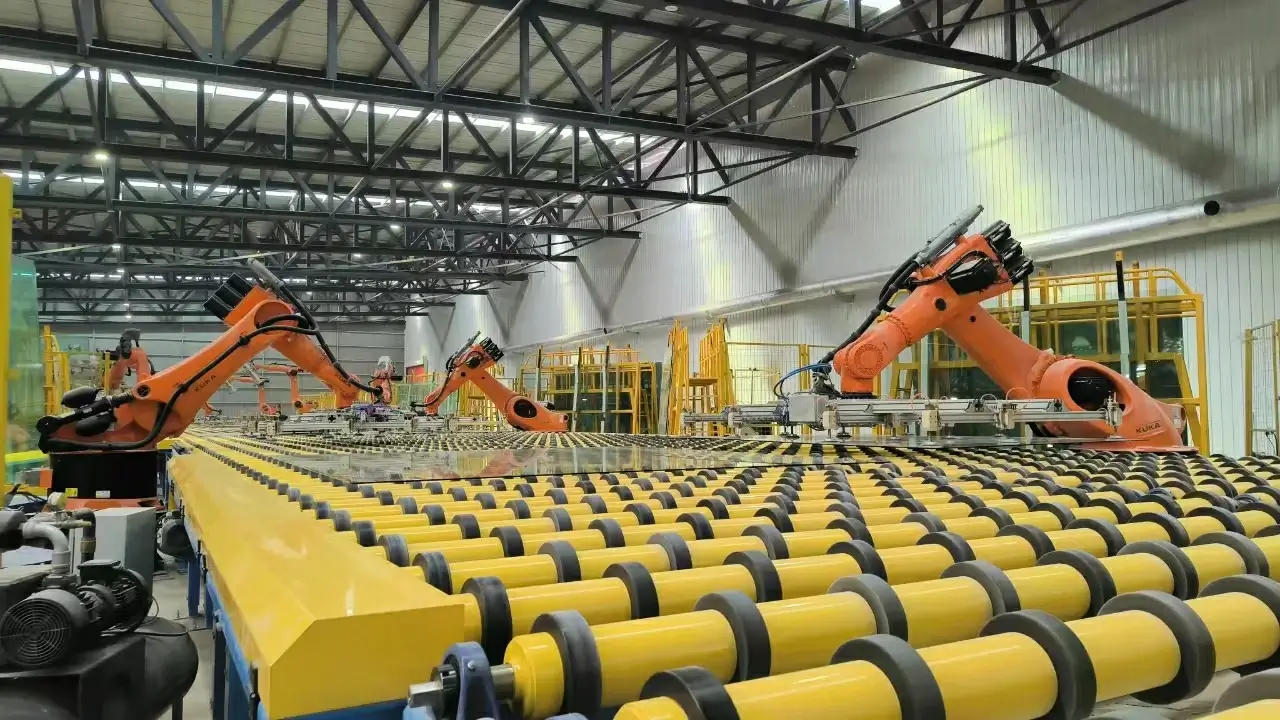

The Benefits and Uses of Float Glass Windows
Float glass windows have become a significant component in modern architecture and design. Unlike traditional glass production methods, which often resulted in uneven surfaces, float glass is manufactured using a process that ensures a flat, smooth finish, making it ideal for various applications. This article will explore the benefits and uses of float glass windows, as well as considerations for their installation and maintenance.
What is Float Glass?
Float glass is created by floating molten glass on top of molten tin. This process produces a uniform thickness and an exceptionally flat surface, devoid of irregularities or distortions that might affect visibility. Because of these properties, float glass is widely used in windows, facades, and numerous other architectural applications. Its clarity enables optimal light penetration while providing an unobstructed view, making it a popular choice for residential and commercial buildings.
Advantages of Float Glass Windows
1. Superior Clarity and Transparency One of the most notable benefits of float glass windows is their exceptional clarity. The floating process eliminates bubbles, impurities, and rough surfaces, resulting in a product that maximizes light transmission and provides a clear view of the outside environment.
2. Versatile Applications Float glass windows can be used in various applications beyond traditional windows. They are ideal for doors, glass partitions, skylights, and curtain walls, enhancing the aesthetic appeal of structures while allowing natural light to permeate indoor spaces.
3. Energy Efficiency Float glass can be manufactured in double or triple-glazed varieties, enhancing its insulating properties. This feature decreases heat loss in winter and reduces heat gain in summer, leading to a more energy-efficient building. Homes and offices equipped with float glass windows can experience lower energy bills and a reduced carbon footprint.
4. Safety and Security While float glass is relatively fragile, advancements in technology have led to the development of tempered and laminated float glass options. These safety glass products are designed to withstand impacts better, reducing the risk of shattering and providing a level of security against break-ins.

5. Aesthetic Appeal The sleek, modern appearance of float glass windows adds a contemporary touch to any building design. They can be manufactured in various shapes and sizes, allowing architects and designers immense creative freedom. This adaptability enables float glass to complement a wide range of architectural styles, from traditional to ultra-modern.
Installation Considerations
The installation of float glass windows requires careful planning and expert execution. It is essential to ensure the structural integrity and alignment of the frames, as any misalignment can lead to air leaks, moisture intrusion, or even structural failure. Working with professional glaziers who understand the specifics of float glass installation can help avoid these issues.
Proper sealing and insulation are vital during the installation process. High-quality weather stripping and sealants should be used to minimize drafts and improve energy efficiency. Additionally, the orientation and placement of float glass windows should be considered to maximize natural light while minimizing glare and solar heat gain.
Maintenance of Float Glass Windows
Maintaining float glass windows is relatively straightforward but requires regular attention to keep them in optimal condition. Cleaning the glass surfaces with a gentle glass cleaner will prevent the buildup of dust and grime, preserving clarity and transparency. It is essential to avoid abrasive cleaners or materials that can scratch the surface.
Routine inspections of seals, frames, and any hardware are important to identify wear or damage. Prompt repair of any issues will ensure the longevity and functionality of the windows.
Conclusion
Float glass windows are a remarkable innovation in building materials, offering clarity, energy efficiency, and aesthetic versatility. Their widespread use in modern architecture underscores their importance in creating functional and beautiful spaces. With proper installation and maintenance, float glass windows can provide lasting benefits to homeowners and builders alike, enhancing both the value and comfort of any property. As architectural trends continue to evolve, float glass will undoubtedly remain a key player in the design and construction of environmentally friendly and visually appealing buildings.